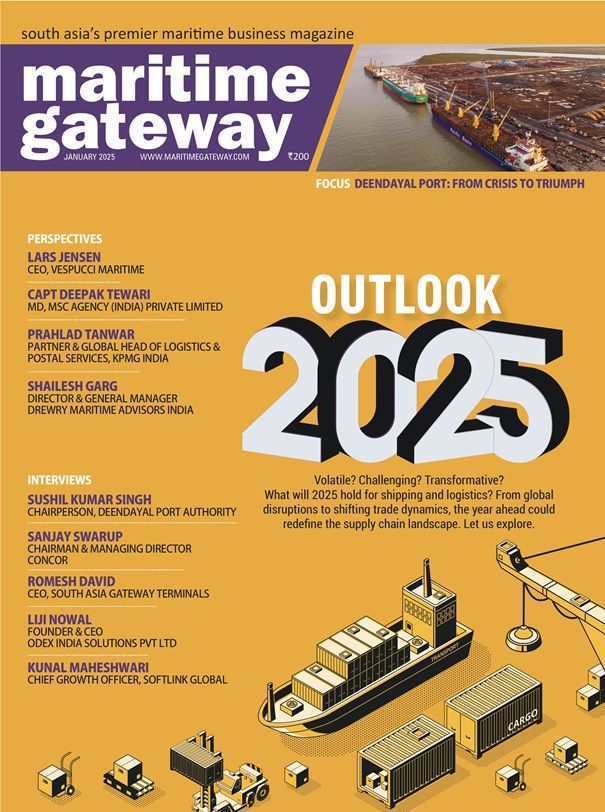Anthony Veder, a leading gas shipping company, has strengthened its partnership with NAPA, a global provider of maritime software and data services, to expand the use of electronic logbook solutions and ease regulatory reporting.
The joint project between the two companies introduces the functionality of voyage reporting, helping Anthony Veder streamline onboard data collection and fulfill increasingly complex environmental regulatory requirements, thereby contributing to shipping meeting its net zero target.
With the new voyage reporting functionality, NAPA Logbook reduces the administrative burden of regulatory compliance and covers the monitoring systems EU-MRV (Monitoring, Reporting and Verification), and the IMO-DCS (Data Collection System). The digital platform enables the integration of logbooks with regulatory reporting; data is automatically shared with shoreside teams, via NAPA Fleet Intelligence, as well as with the verifier, in this case DNV Emission Connect, in near real-time. With type approval from DNV, the platform goes beyond normal electronic logbook systems and can submit data for verification to DNV, as well as other relevant stakeholders in the supply and emissions chain, in a format that meets all requirements. This provides end-to-end compliance support, removes duplication of work and offers invaluable time savings for crew which would otherwise not be possible.
With the initial success of NAPA Logbook across Anthony Veder’s fleet, the company is ramping up digitalization to ease seafarer workload, boost morale, and reduce the margin for error. Since 2023, NAPA Logbook has already cut 2000 administrative hours per vessel – a 14% reduction.
Digital tools can help reduce the administrative workload onboard, and contribute to the accuracy of reporting, which is becoming increasingly important with regulations like the EU ETS and FuelEU Maritime.
Björn van de Weerdhof, Commercial and Sustainability Director at Anthony Veder, said: “Being compliant with regulatory reporting is important but is becoming more and more complex. Without digitization and automation this would be increasing time spent by our seafaring colleagues. By partnering with NAPA, integrating their digital logbook, and through digital solutions and automated entries, we significantly reduced the administrative burden on board so our seafarers can focus on their core duties: operating our vessels in a safe, sustainable, and efficient way for our customers.”
Tommi Vihavainen, Director, Development, NAPA Safety Solutions, added: “We recognize that crew are already stretched thin, and new regulations only add to this challenge by diverting precious time from primary responsibilities. Digitalization of paper-based processes, using tools like NAPA Logbook, can streamline onboard data collection and reporting to minimize duplication of work, ensure regulatory compliance, meet sustainability goals, and, ultimately, contribute to creating a more satisfying work environment. We are proud of the positive impact we’ve been able to create for Anthony Veder in such a short amount of time and look forward to continuing our partnership.”
The global maritime industry, and seafarers in particular, are grappling with new ways of working to support shipping’s decarbonization transition. A recent survey by the International Seafarers Welfare and Assistance Network (ISWAN) revealed that 54% of seafarers reported an increase in their workloads, 44% said they are feeling higher levels of stress and 33% fear potential criminalization due to complex reporting requirements.
Digital, integrated solutions like NAPA Logbook, through NAPA Fleet Intelligence, allow teams to tackle these issues by doubling down on automation, thereby minimizing errors and saving time, and offering a holistic approach to operational safety and efficiency. By enabling data to be exchanged between systems, teams can enhance situational awareness and make better-informed decisions on critical operational matters and regulatory compliance, with greater speed and accuracy, as the platform also gives a centralized data overview.







